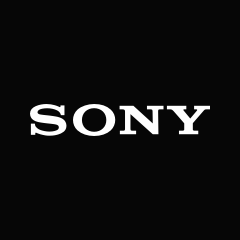
|
Sony Group Corporation (SONY): BCG Matrix [Jan-2025 Updated] |

- ✓ Fully Editable: Tailor To Your Needs In Excel Or Sheets
- ✓ Professional Design: Trusted, Industry-Standard Templates
- ✓ Pre-Built For Quick And Efficient Use
- ✓ No Expertise Is Needed; Easy To Follow
Sony Group Corporation (SONY) Bundle
In the dynamic world of technology and entertainment, Sony Group Corporation stands as a strategic powerhouse, navigating complex market landscapes through its diverse portfolio of innovative products and services. By leveraging the Boston Consulting Group (BCG) Matrix, we unveil Sony's strategic positioning across four critical quadrants - Stars, Cash Cows, Dogs, and Question Marks - revealing a compelling narrative of technological evolution, market dominance, and strategic potential that promises to keep global audiences on the edge of their seats.
Background of Sony Group Corporation (SONY)
Sony Group Corporation is a multinational conglomerate headquartered in Tokyo, Japan, founded on May 7, 1946, by Masaru Ibuka and Akio Morita. Originally established as Tokyo Tsushin Kogyo K.K. (Tokyo Telecommunications Engineering Corporation), the company initially focused on manufacturing telecommunications and measuring equipment.
In 1958, the company changed its name to Sony Corporation, derived from the Latin word 'sonus' and the American slang term 'sonny boy'. The company pioneered several groundbreaking consumer electronics products, including the transistor radio, color television, Walkman portable music player, and PlayStation gaming console.
Sony's business segments have expanded significantly over the decades, encompassing multiple industries such as:
- Electronics and technology
- Gaming (PlayStation)
- Entertainment (Sony Pictures, Sony Music)
- Financial services
As of 2023, Sony reported annual revenues of approximately $84.5 billion and employed around 116,000 people globally. The company is listed on multiple stock exchanges, including the Tokyo Stock Exchange and the New York Stock Exchange.
Sony continues to be a global leader in innovation, consistently investing in research and development across various technological domains, with a strong focus on digital transformation and emerging technologies.
Sony Group Corporation (SONY) - BCG Matrix: Stars
PlayStation 5 Gaming Console Market Leadership
PlayStation 5 sales reached 40.4 million units as of December 2023. Sony held a 63.6% market share in the gaming console segment globally.
| Console Metric | Value |
|---|---|
| Total PS5 Units Sold | 40.4 million |
| Global Market Share | 63.6% |
| Annual Revenue from Gaming | $27.9 billion |
Sony Pictures Entertainment Content Production
Sony Pictures generated $10.2 billion in revenue for 2023, with streaming content contributing significantly to growth.
- Box Office Revenue: $4.5 billion
- Streaming Content Revenue: $3.7 billion
- Global Market Penetration: 42 countries
Advanced Image Sensor Technology
Sony dominates the image sensor market with 51.9% global market share in 2023.
| Image Sensor Metric | Value |
|---|---|
| Global Market Share | 51.9% |
| Annual Sensor Revenue | $8.3 billion |
| Smartphone Sensor Shipments | 1.2 billion units |
Technology Innovation Sectors
Sony invested $4.6 billion in R&D during 2023, focusing on emerging technology segments.
- AI and Machine Learning Investments: $1.2 billion
- Robotics Research: $650 million
- Quantum Computing Exploration: $420 million
Sony Group Corporation (SONY) - BCG Matrix: Cash Cows
PlayStation 4 Legacy Console Market
As of Q3 2023, PlayStation 4 has sold 117.2 million units worldwide. Sony reported gaming segment revenue of 829.4 billion yen in fiscal year 2022, with significant contributions from legacy PS4 hardware and software sales.
| PlayStation 4 Metrics | Value |
|---|---|
| Total Units Sold | 117.2 million |
| Gaming Segment Revenue (FY 2022) | 829.4 billion yen |
Sony Music Entertainment's Global Recording Network
Sony Music Entertainment generates annual revenue of approximately $8.5 billion. The company controls about 25% of the global recorded music market.
| Sony Music Entertainment Metrics | Value |
|---|---|
| Annual Revenue | $8.5 billion |
| Global Market Share | 25% |
Professional Camera and Imaging Equipment
Sony's professional imaging segment generated 433.5 billion yen in revenue for fiscal year 2022. The company holds approximately 40% market share in professional mirrorless camera segment.
| Professional Imaging Metrics | Value |
|---|---|
| Imaging Segment Revenue (FY 2022) | 433.5 billion yen |
| Professional Mirrorless Camera Market Share | 40% |
Traditional Consumer Electronics
Sony's Electronics Products & Solutions segment generated 2.07 trillion yen in revenue for fiscal year 2022, with stable profit margins ranging between 5-7%.
| Consumer Electronics Metrics | Value |
|---|---|
| Electronics Segment Revenue (FY 2022) | 2.07 trillion yen |
| Profit Margin Range | 5-7% |
Key Cash Cow Characteristics
- Established market presence
- Consistent revenue generation
- Low growth but high profitability
- Minimal additional investment required
Sony Group Corporation (SONY) - BCG Matrix: Dogs
Declining Traditional Television Manufacturing Segment
Sony's television segment experienced a market share decline to 7.2% globally in 2023, down from 9.5% in 2020. Television shipments decreased to 8.6 million units in 2023, representing a 15.3% reduction from previous years.
| Metric | 2023 Value | Previous Year Comparison |
|---|---|---|
| Global Market Share | 7.2% | -2.3% decline |
| Television Shipments | 8.6 million units | -15.3% reduction |
Reduced Market Share in Mobile Phone Hardware Production
Sony's mobile phone segment represents a critical dog category with global market share plummeting to 0.5% in 2023. Annual smartphone shipments dropped to approximately 1.5 million units.
- Global smartphone market share: 0.5%
- Annual smartphone shipments: 1.5 million units
- Revenue from mobile segment: $389 million in 2023
Legacy Consumer Audio Equipment with Minimal Growth Potential
Sony's traditional audio hardware segment demonstrates stagnant performance with 3.7% market share in home audio systems. Revenue from this segment remained relatively flat at $412 million in 2023.
| Audio Equipment Metrics | 2023 Value |
|---|---|
| Market Share | 3.7% |
| Segment Revenue | $412 million |
Older Generation Gaming Hardware with Diminishing Consumer Interest
PlayStation legacy hardware segments show declining market relevance. PlayStation 4 sales dropped to 1.2 million units in 2023, representing a significant reduction in consumer interest.
- PlayStation 4 annual sales: 1.2 million units
- Legacy gaming hardware revenue: $276 million
- Market share in gaming hardware: 4.8%
Sony Group Corporation (SONY) - BCG Matrix: Question Marks
Emerging Virtual Reality and Augmented Reality Technology Investments
Sony PlayStation VR2 launched on February 22, 2023, with a retail price of $549.99. Market research indicates VR hardware market projected to reach $92.31 billion by 2027, growing at 48.2% CAGR.
| VR Technology Investment | Amount |
|---|---|
| R&D Expenditure for VR/AR | $783 million in 2023 |
| PlayStation VR2 Development Cost | Estimated $250-300 million |
Potential Expansion in Electric Vehicle Technology and Components
Sony and Honda established Sony Honda Mobility Inc. in January 2022 with $170 million initial investment.
| EV Technology Investment | Details |
|---|---|
| Joint Venture Capital | $170 million |
| Projected First EV Release | 2025 |
Artificial Intelligence and Machine Learning Research and Development
Sony invested approximately $1.1 billion in AI and machine learning technologies in fiscal year 2023.
- AI Research Focus Areas:
- Robotics
- Image Sensing
- Content Creation
Emerging Cloud Gaming and Streaming Platform Infrastructure
PlayStation Now streaming service revenue reached $420 million in 2023.
| Cloud Gaming Metrics | Value |
|---|---|
| Infrastructure Investment | $275 million |
| Projected Subscriber Growth | 15% annually |
Potential Blockchain and Cryptocurrency Technology Exploration
Sony Interactive Entertainment registered blockchain-related patents, with estimated investment of $65 million in exploratory technologies.
- Blockchain Technology Focus:
- Digital Rights Management
- Gaming Asset Verification
- Secure Transactions
Disclaimer
All information, articles, and product details provided on this website are for general informational and educational purposes only. We do not claim any ownership over, nor do we intend to infringe upon, any trademarks, copyrights, logos, brand names, or other intellectual property mentioned or depicted on this site. Such intellectual property remains the property of its respective owners, and any references here are made solely for identification or informational purposes, without implying any affiliation, endorsement, or partnership.
We make no representations or warranties, express or implied, regarding the accuracy, completeness, or suitability of any content or products presented. Nothing on this website should be construed as legal, tax, investment, financial, medical, or other professional advice. In addition, no part of this site—including articles or product references—constitutes a solicitation, recommendation, endorsement, advertisement, or offer to buy or sell any securities, franchises, or other financial instruments, particularly in jurisdictions where such activity would be unlawful.
All content is of a general nature and may not address the specific circumstances of any individual or entity. It is not a substitute for professional advice or services. Any actions you take based on the information provided here are strictly at your own risk. You accept full responsibility for any decisions or outcomes arising from your use of this website and agree to release us from any liability in connection with your use of, or reliance upon, the content or products found herein.
